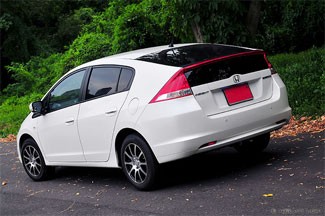
Yeah, I know that a lot of people buy hybrids as a lifestyle statement—a visible sign that, even if they haven’t divorced their car, they’re still doing their best to be “green.”
But according to Business Fleet magazine, even the least environmentally aware consumer has an excellent reason to choose a hybrid: as cars go, they’re just plain cheap. As gas prices rise, the cost advantages of a fuel-sipping vehicle really start to add up. And that’s true not only because hybrid owners spend less on gas, but also because hybrids appear to be holding their value over time.
A few years back, though, the picture was very different. People who bought their hybrids in 2008, when gas prices were soaring, might have been regretting the move a year later—when the Prius started getting a bad rap for safety problems (an issue that some thought was vastly overblown), and collapsing gas prices ate away at the cost savings from hybrid technology.
But safety concerns didn’t make much of a long-term dent in the Prius’s resale value. And when gas prices started climbing again, the fuel savings from hybrid technology started outweighing the slightly higher purchase price. Now, by Business Fleet’s calculations—which factor in depreciation, gas, repairs, insurance, and other costs — the Prius is a car that should set a skinflint’s heart aflame. In fact, at 28 cents per mile over five years of driving, there’s only one car that beats the Prius in Business Fleet’s cost calculations: the hybrid Honda Insight (pictured above), at 27 cents per mile over five years. Of course, Business Fleet assumes a gas price of about $2.79 per gallon, which (in case you hadn’t noticed) is badly out of date already—and at today’s prices, the Prius may have pulled ahead a bit.
But regardless of which hybrid is cheaper, the bottom line is the same: some of the most fuel efficient cars on the market are also the cheapest ones to own. Which means that soon enough the Prius and Insight won’t simply be symbols of green chic—but also of enlightened frugality.
Honda Insight image courtesy of Flickr user kelvin255, distributed under a Creative Commons license.

Comments are closed.